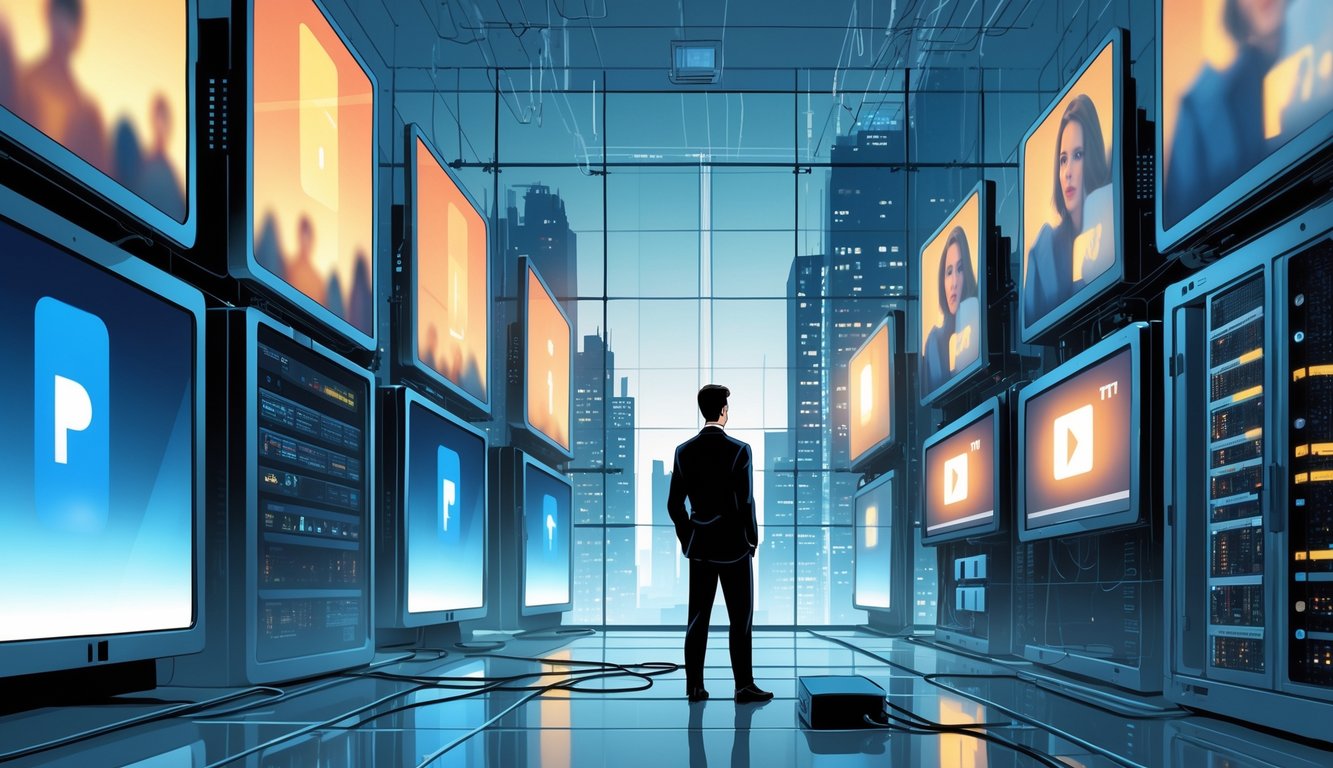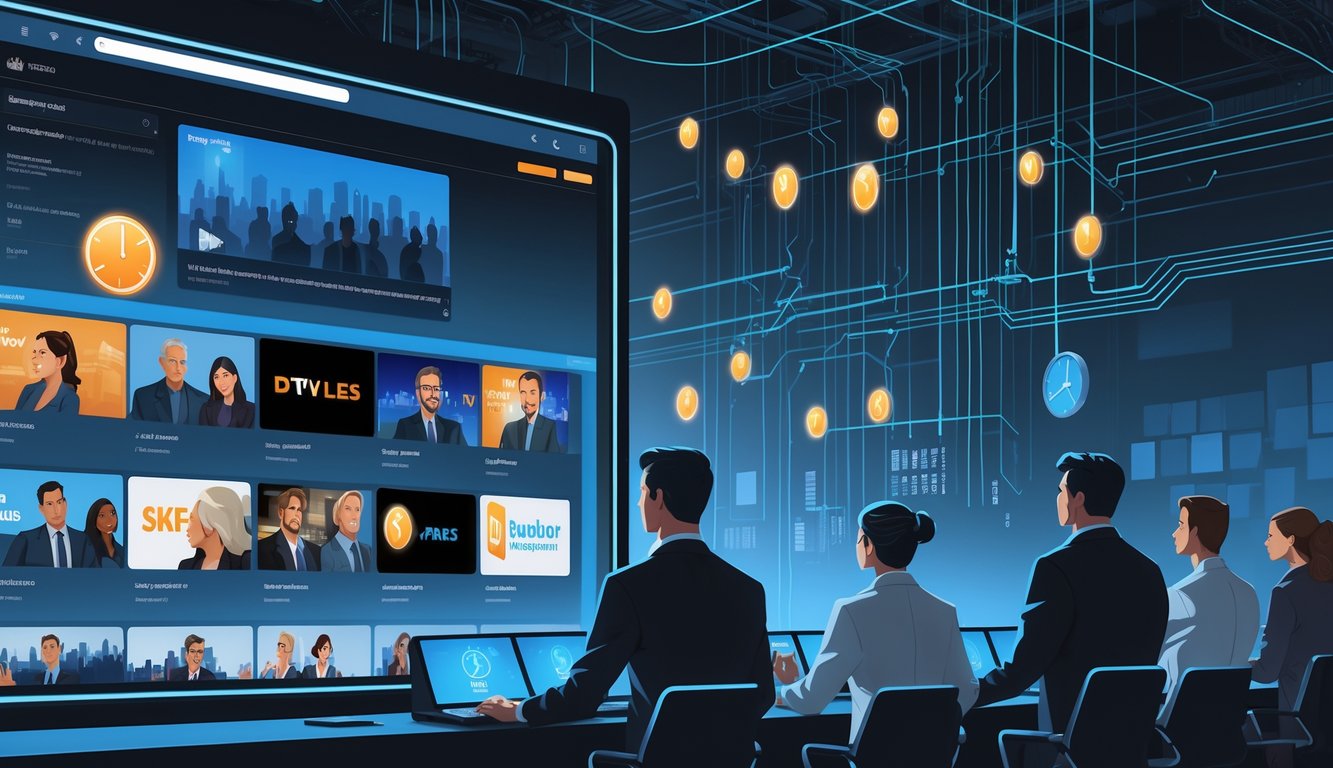
Why am I always staring at a loading screen, again? Another “new season coming soon” and my inbox is overflowing and my coffee’s gone cold. It’s like, what’s the actual hold-up? My friend—yes, the one who won’t shut up about streaming analytics (which, apparently, is a real job, who knew?)—claims private networks drag out release schedules on purpose. Supposedly it’s all about squeezing every last drop out of their subscribers and saving on marketing, and, honestly, it sounds shady but also tracks with all the complaints I see on Cord Cutters News. People wait two years for a sequel and by then, I can’t even remember the main character’s name—except, weirdly, I can still find their Funko Pop at Target.
The funniest part? Networks act like they’re not just sitting on finished episodes, using cliffhangers to hold us all hostage for their quarterly stats. I heard a showrunner blurt out at NAB that “timing is everything for quarterly reports, not creative arcs.” So, if you’re wondering why Reddit is full of bots arguing about CGI budgets, it’s probably because nobody wants to talk about the real culprit: corporate risk calculators. TaskMaster, season nine—forget it. Sometimes I can’t even watch the pilot because some licensing glitch locks it up overseas. And, side note, bingeing everything at once? Apparently, that’s a cardinal sin for the streaming algorithms, but honestly, it’s my preferred method of coping with all this “coming soon” nonsense.
If all this waiting meant better writing, maybe I’d get it. But mostly, it’s just a weird limbo—fewer episodes, longer breaks, and I’m left wondering what kind of data they’re actually collecting about my patience. Are we supposed to buy a new smart TV every time there’s a gap? Is this what being a fan means now? My dermatologist says stress won’t give me wrinkles, but I’m not convinced she’s ever had to refresh a homepage for a season that never arrives. So yeah, if it feels like TV is dragging its feet, you can probably blame private networks and their spreadsheet sorcery. Don’t expect them to admit it, though.
Understanding Private Networks in Entertainment
Streaming stats give me a headache. Seriously, can anyone actually trust what Netflix or HBO Max claims about their numbers? Behind the scenes, you’ve got data people, licensing folks, lawyers—everyone hiding the real viewership and playing games with release dates. There’s no actual rulebook for what counts as a “view,” and sometimes it feels like I’m stuck reading press releases that say nothing. Are they chasing ad sales or just trying to keep their franchises alive? Who knows.
What Are Private Networks?
Imagine a maze—no monsters, just endless passwords and managers. Private networks in entertainment aren’t like your WiFi; they’re these locked-down digital fortresses with security layers for days. Disney Plus, Netflix, Apple TV Plus, whatever—they all build these walls around their stuff. Why? Not just to stop piracy or spoilers (though, yeah, that’s a big thing). They want to control who sees what, when, and how. Even their own testers sometimes can’t get access to the final cut until hours before launch. I tried getting unreleased episode stats from Warner once—got laughed at. Nobody’s allowed in.
Most people have no idea how tightly everything is controlled. Even promo clips are sliced and diced by marketing, with access keys and NDAs that probably outnumber the actual plot points. I’ve seen workflow charts so boring they’d put you to sleep, but the point is: if you’re not on the core team, you’re not seeing anything early. Not even the trailers.
How Private Networks Operate in the Television Industry
Late-night emails, panic over launch dates, shifting the whole calendar to match embargoes—this is normal, apparently. All to avoid spoilers and keep hype up, but honestly, it just means nobody gets real feedback and the actors never get to talk to fans until months later.
Netflix guards its viewership data like it’s nuclear codes (see for yourself). Even inside the company, people have to file requests just to see how a show’s doing. It’s all bottlenecks and red tape, so nothing leaks and nobody can game the system.
Tech teams go nuts over security. Pre-release episodes get locked on special drives with location tracking. Cloud clips for VFX edits bounce around in password-protected limbo. Funniest thing I’ve seen: during a Zoom Q&A, a director’s screen just goes black—permissions changed mid-call. No one admits it, but it happens all the time.
The Role of Streaming Services in Release Delays

HBO’s marketing guy told me, “It’s about anticipation, not bandwidth.” Sure, but my group chat already found the spoilers. Streaming services act like delays are inevitable. Disney+ will drop two Marvel episodes, then nothing for weeks—unless you live in a different country, or have cable, or whatever. Meanwhile, I’m refreshing Apple TV+ at midnight while people in New Zealand are already posting memes.
Strategic Release Timing
Honestly? It’s chaos. Every platform staggers their premieres, supposedly to “manage hype” or “reduce server strain.” Sometimes they just delay a whole season for months overseas—because of local dubbing, legal stuff, or just to avoid clashing with other shows. I asked a Netflix engineer once; he said server capacity isn’t even the issue anymore.
A friend at a Scandinavian streamer said, “It’s for local dubbing. People hate subtitles.” But that doesn’t stop spoilers from hitting Twitter before breakfast. The weirdest part: the data says simultaneous releases boost engagement by 30%, so why do they keep doing this? I don’t get it.
Exclusive Content Agreements
Ever notice HBO originals show up on Amazon in Denmark? Turns out, exclusive content deals decide release timing more than anything technical. AMC might get first dibs in the US, then sell delayed rights elsewhere. That means months of waiting and, yeah, piracy—no surprise there. Sometimes the contract even says a local provider gets the show two weeks after Disney+, even though fans already found bootlegs.
A licensing agent told me, “They just chase the biggest upfront check.” Doesn’t matter if fans are behind. Apple TV+ seems to avoid most of this, probably because they have less stuff. But for big streamers, international exclusivity is worth more than a few angry tweets. Here’s a study on how it affects movie availability, if you’re into that. Every new deal just makes the calendar even messier. I’ve lost count of how many finales I’ve seen spoiled in another language before they’re even out here.



